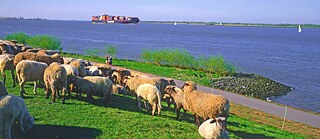Hasnain Kazim has worked as a correspondent in many countries. What did he miss most there? The German language. A text about the identity-forming power of one's own language – and the beauty of dialects worth preserving.
If there's one thing I miss when I'm abroad for a long time, it's the German language.When I lived in Pakistan for a few years and worked there as a correspondent, I loved going to the Tatort meeting on Sunday evenings. Although I don't particularly like this crime TV series, I was still drawn to these evenings. Because unlike at other receptions and celebrations, it wasn't English or Urdu that was spoken here, but German. Although I worked with and in German at the time and my wife, son and I communicated in German at home, I missed the language in everyday life.
For example, when I wanted to buy books in German. In Islamabad, the Pakistani capital, where we lived for a while, there are excellent bookshops. You can even get banned literature there on request, for example anything by Salman Rushdie. But there is nothing in German. So I got myself an e-book reader for the first time so that I could buy and read books in German.
Cosy Linguistic Landscapes
Since I myself have had these experiences in my life abroad, I understand better why people see something like home in their mother tongue. Why, for example, people living in Germany with roots in Turkey like to speak Turkish, people from Arab countries Arabic, people from Ukraine Ukrainian and so on. Language is a sense of belonging. It means having a home and an identity. You can move around in it like in a familiar landscape. You discover regional specialities. And some things are very close to you because you grew up in a certain language. Some peculiarities and words bring back memories. One or two terms only exist in this one, your own language; they cannot be translated.Dialect Means Familiarity
In 2023, I travelled across Germany by bike in search of what holds our country together. During this journey, I learnt to appreciate the many dialects that the country has to offer. As soon as I hear Low German, which is not a dialect but a language in its own right, namely “Platt” (Low German), I am immediately overcome by a feeling of home. In my childhood in the Lower Saxon village of Hollern-Twielenfleth in the region “Altes Land”, many adults spoke like this. Und vun Dörp to Dörp ünnerscheet sik de Spraak. (And the language varies from village to village.) When I cycled through Mecklenburg-Vorpommern as part of my tour of Germany, I heard that people here also speak “Platt” – but differently than in my home village. Different words, different intonation, different spelling. And yet so familiar.A Bond That Connects
When I arrived in the Bavarian market town of Donaustauf, I visited the Walhalla. This is a memorial commissioned by King Ludwig I of Bavaria, a temple of honour for “gloriously distinguished Germans” and for important personalities of the “German tongue”. An exhibition of marble busts of people honoured as German heroes. King Ludwig I formulated the criteria as follows: “No class, not even the female sex, is excluded.” But “to be of German tongue is required in order to be able to become Walhalla's comrade”, because language is “the great bond that connects, if every other bond were destroyed; in language there is spiritual connection”.I find this more plausible than anything else I have read and heard so far from politics, culture and society about ‘Leitkultur’ or the unifying bond in Germany: language as a unifying bond! Our language! I believe it is more important than some of us realise.
And yet people in Germany use it in very different ways, as I have learnt on my travels. Low German, for example, is disappearing because it is considered the language of farmers, of the rural population. Those who are self-respecting speak High German. I only know very few young people who speak “Platt” (Low German). I can hardly imagine that North Germans would be proud of their Low German. What a pity, really!
Cultivating Linguistic Idiosyncrasies
In other regions, however, people have a different attitude. From 1999 to 2021, the advertising slogan of the people of Baden-Württemberg was: “We can do everything. Except High German.” Fantastic! The advertising agency that came up with this slogan initially wanted to sell it to Saxony, but the state government in Dresden at the time refused. What I then realised: Nowhere else on my cycle tour have I come across so many people who grind their language in such a way that you can't hear their origins as in Saxony. Even though I understand that people make jokes about dialects and linguistic idiosyncrasies, I find it sad when people feel compelled to hide their language.Even in Austria, where I currently live with my family, regional idiosyncrasies are disappearing because ‘German’ is the main language spoken on television, on the radio and on the internet. Some parents therefore attach great importance to their children saying “Kasten” instead of “Schrank” and “Polster” instead of “Kissen”. Even if this sometimes seems strange, I can understand it.
Language and dialects in particular must be cultivated. We should all work on this. Otherwise we will lose something important – namely something that gives us a sense of home.
January 2025
